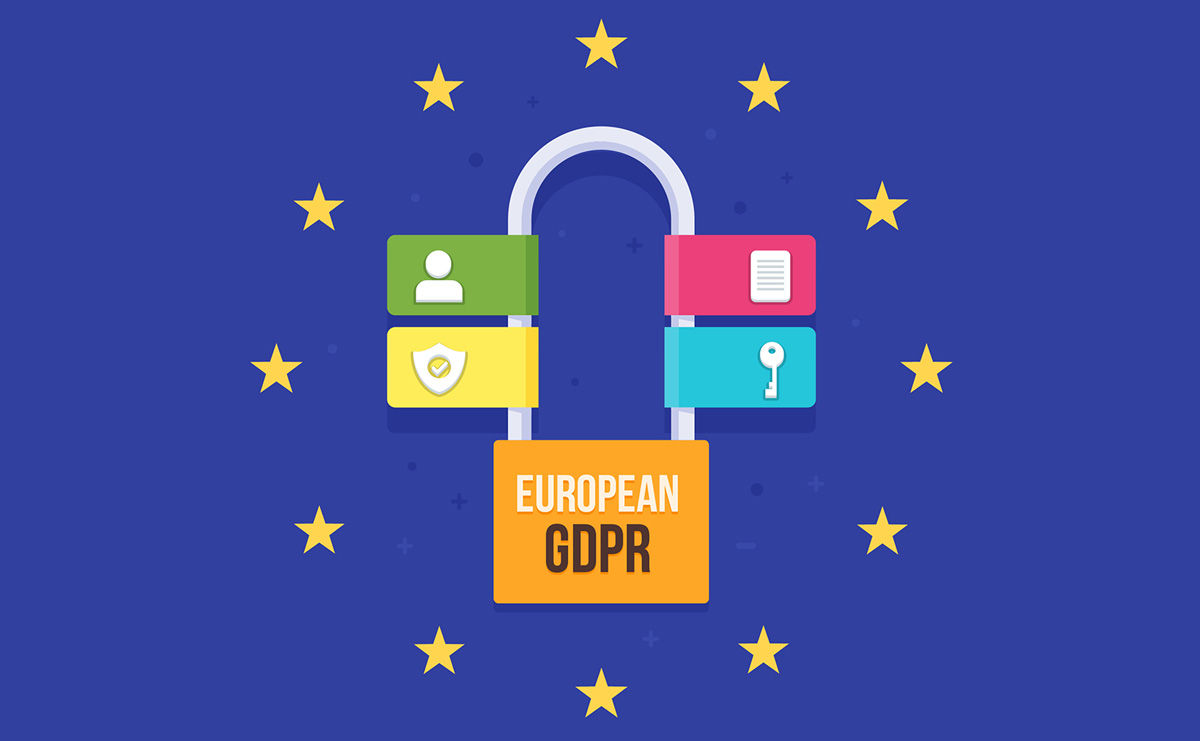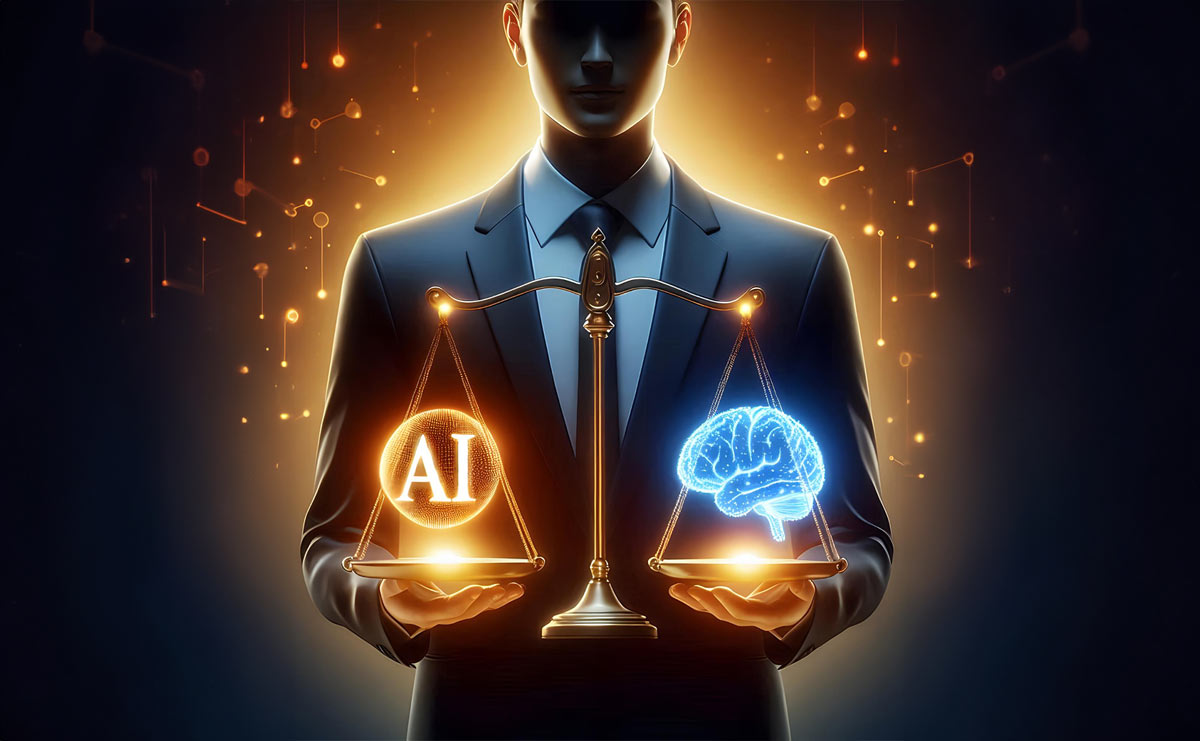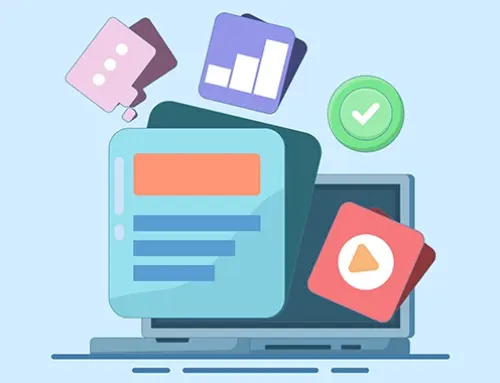Contents
Human vs. AI Accountability: Should They Be Treated Equally Under the Law?
As artificial intelligence (AI) continues to play a bigger role in our lives—from self-driving cars to healthcare apps—it raises important questions: Should AI be held accountable like humans? Or Should AI be granted decision-making authority in areas that significantly impact human lives, such as healthcare or criminal justice, without human oversight? AI brings a lot of benefits, like making things faster and more efficient, it also creates new challenges when it comes to responsibility. Who is liable when AI makes a mistake? Answering this question means looking at some of the core ideas behind ethics, responsibility, and how the law should treat these advanced technologies. It is essential to treat AI not as a replacement for human judgment but as a complement to legal expertise.
Defining Accountability in the AI Era
Human accountability is typically based on intent, negligence, or direct involvement in actions leading to harm. In legal contexts, individuals are held responsible for their decisions and actions when they breach a duty of care, break laws, or intentionally cause harm. Conversely, AI operates on algorithms and data-driven processes that lack intentionality, emotions, or moral reasoning.
Given that AI systems function as tools designed and programmed by humans, does it make sense to hold AI to the same accountability standards? Or should responsibility rest with those who create, deploy, and oversee these systems?
Does AI Have Rights?
AI does not have legal rights like humans or corporations. It is considered a tool or a product created by humans, and its rights are not recognized in legal systems worldwide. Several ethical and legal debates about AI systems’ treatment, regulation, and accountability are ongoing, mainly as they grow more advanced. Still, as of now, AI entities themselves do not have any rights.
Discussions around AI rights often focus on ethical concerns, such as ensuring fairness, preventing bias, and maintaining human oversight rather than granting AI independent rights. There is, however, interest in creating laws to regulate AI’s behavior and impact on society, particularly in areas like privacy, employment, and accountability for AI-caused harms.
The Legal Complexity of AI Accountability
AI systems are not recognized as legal entities capable of bearing legal responsibility. In instances where AI causes harm—whether through a self-driving car accident or biased hiring algorithms—the question becomes one of determining where liability should be placed. Is it the manufacturer, the developer, the end user, or the system itself that should be held responsible?
This ambiguity challenges traditional legal frameworks, which are designed to address human actions. Introducing a separate set of standards for AI accountability may be necessary as AI’s role expands. However, machine learning models’ inherent unpredictability complicates the blame assignment. Unlike humans, who can be questioned for their motives or intentions, AI systems rely on intricate patterns that may be difficult to explain or justify after a harmful incident.

The Human Role: Developers, Operators, and Users
Many argue that humans should remain accountable for AI systems—whether the developers who design them, the operators who deploy them, or the users who rely on them. Each group plays a pivotal role in ensuring that AI systems function safely and ethically.
Developers: Those responsible for building AI systems have an ethical and legal obligation to mitigate risks, ensure transparency, and design robust systems that can be audited. If flaws or biases in the code lead to harm, developers could be held accountable for inadequate safeguards.
Operators: Companies and organizations deploying AI systems are responsible for how those systems are used in real-world environments. This includes ensuring proper oversight, testing for unintended consequences, and implementing contingency plans should the AI system fail.
Users: Individuals or organizations using AI technologies should be educated about the capabilities and limitations of these tools. In some cases, failure to properly oversee AI usage or interpret its outputs could lead to human liability for damages caused.
Should AI Be Treated as a Legal Entity?
The treatment of AI as a legal entity introduces a host of implications for accountability, ownership, and liability. One of the central challenges is defining the scope of legal rights and responsibilities AI might possess. For instance, if an AI system were to cause harm through a decision, assigning liability becomes complex: Should the blame fall on the AI itself, its developers, or the users? Granting AI legal personhood may allow for a more direct allocation of responsibility, potentially simplifying legal disputes.
Furthermore, the treatment of AI as a legal entity could spark a revolution in the realms of intellectual property and contracts. If an AI independently generates new ideas or creates work, the question arises: Does it hold intellectual property rights over those creations, or would those rights belong to its developers or users? Could AI systems enter into contracts on behalf of humans or organizations, and if so, what safeguards would be necessary to prevent exploitation or errors? These are the potential new rights and responsibilities that could emerge if AI is granted legal personhood.
The idea also brings into question how we might regulate AI behavior. Unlike humans, AI systems lack subjective experiences and the ability to feel remorse or understand consequences meaningfully. Therefore, traditional legal punishments, such as imprisonment or fines, are impractical. Instead, “punishment” could be system shutdowns, access restrictions, or other operational limits. However, this raises ethical concerns—if AI is held accountable, how can it defend itself? Should AI systems have representation in legal disputes, similar to how corporations have legal teams?
Furthermore, they are treating AI as a legal entity that challenges existing frameworks for determining responsibility in fields like tort law and product liability. Developers, manufacturers, and users could face new regulations as they navigate this evolving landscape. While giving AI legal personhood might alleviate some of the burden of proving human fault in complex cases, it also raises concerns about diminishing human accountability.
Ultimately, the question of whether AI should be treated as a legal entity compels society to rethink the concept of legal responsibility. As AI systems gain more autonomy and become integral to decision-making processes, this debate will likely intensify. The need for new laws and legal principles, specifically tailored to the unique capabilities and limitations of AI, will become increasingly crucial in this evolving landscape.
Differentiating AI and Human Accountability
Despite the allure of treating AI as a legal entity, significant differences remain between AI and humans, complicating this approach. Humans possess consciousness, free will, and moral agency—attributes that are central to the concept of accountability. AI systems, regardless of their complexity, lack these qualities. They operate based on pre-defined rules, learned patterns, and statistical analysis but do not make decisions based on emotions, ethical reasoning, or intent. This underscores the necessity of a different accountability framework for AI.
Also, the nature of AI’s decision-making process often results in a lack of transparency, as many machine learning models are considered “black boxes.” Understanding how AI arrived at a particular conclusion makes it easier to hold it accountable in the same way humans are judged for deliberate or negligent actions.
While AI systems are increasingly capable of performing complex tasks, they remain tools created and managed by humans. Accountability for AI-driven actions ultimately rests with the individuals or organizations behind their development and implementation. Until AI systems possess characteristics such as consciousness, intent, and moral reasoning—which is currently far beyond technological reach—treating them as legally accountable entities remains both impractical and ethically contentious.

AI and General Data Protection Regulation (GDPR): Navigating the Complex Landscape of Data Protection
Striking a Balance: Collaborative Accountability
Rather than treating AI as equivalent to humans under the law, a more balanced approach may be to recognize the collaborative nature of AI and human interaction. In most cases, AI functions as a tool or extension of human decision-making rather than acting independently. Therefore, assigning a shared accountability model—where developers, operators, and users bear responsibility depending on their role in the system—might be more appropriate.
This model would demand transparency, safety standards, and human oversight while recognizing that AI-driven outcomes often result from complex, multi-tiered processes. As a result, regulatory frameworks could adapt to ensure that those with the most influence over AI systems’ design, deployment, and usage are held responsible for any harm caused.
Legal Rights in a Digital Age
In the digital age, legal rights have expanded to address the influence of technology on privacy, intellectual property, free speech, and security. Key areas include:
Privacy Rights: Data protection laws (like GDPR and CCPA) provide control over personal data, while digital surveillance raises privacy concerns.
Intellectual Property: Digital content is protected by copyright laws, and digital licensing affects content ownership.
Freedom of Expression: The digital age has brought about a new frontier for the age-old debate on censorship and free speech. Social media platforms have become the battleground for these legal debates, as regulators strive to strike a balance between freedom and regulation.
Access Rights: Internet access is seen as essential, with net neutrality ensuring equal online treatment.
Consumer Protection: In the digital age, laws play a crucial role in addressing fraud and ensuring the rights of online consumers. These laws provide a safety net for online purchases, enhancing consumer confidence in the digital marketplace.
Cybersecurity: Legal protections are in place to cover cybercrime, providing a sense of security and recourse for victims of digital attacks.
Right to Be Forgotten: Individuals can request the deletion of outdated online data.
Digital Identity: Laws protect biometric data and digital identities from misuse.
Electronic Contracts: E-signatures and digital contracts are legally recognized, simplifying online transactions.
The Future of AI Accountability in Law
As AI continues to evolve, legal systems will need to grapple with the question of accountability in ways that preserve fairness and justice while acknowledging its unique characteristics. Courts, regulators, and lawmakers may need to develop new legal doctrines to address the complexities of AI while also ensuring that human responsibility remains at the forefront.
Ultimately, human and AI accountability should not be treated equally under the law because their nature, actions, and capabilities differ significantly. However, this does not absolve humans from ensuring AI systems are safe, transparent, and aligned with ethical standards. A future legal framework that holds humans accountable for the AI they create while establishing mechanisms for redress, compensation, and risk mitigation may be the key to managing the challenges posed by AI.
In the ongoing debate about AI and accountability, one principle remains clear: As the creators and users of these systems, humans must remain accountable for their design and deployment, ensuring that AI serves society ethically and safely.
Integrating RunSensible for Transparency and Accountability
To manage the complex legal challenges that arise from AI accountability, law firms must stay ahead by adopting comprehensive solutions that streamline processes while ensuring transparency—platforms like RunSensible offer robust features for managing legal workflows, documentation, and accountability. With customizable workflows, automated documentation, and integrated compliance tools, RunSensible enables law firms to efficiently track and record AI systems’ development, deployment, and oversight.
With tools like RunSensible, legal teams can better manage AI-related cases. RunSensible provides a centralized system that maintains records of AI decision-making processes, ensuring that all legal steps are properly documented. This helps mitigate risks and assign human accountability for AI’s actions. RunSensible’s adaptability to other legal technologies allows firms to stay ahead in the fast-paced digital environment, providing real-time solutions for complex AI-related legal disputes.
In a world where AI is becoming more autonomous, platforms like RunSensible empower law firms to uphold human responsibility by ensuring transparency, traceability, and comprehensive oversight over AI systems. This aligns with the ethical and legal expectations surrounding AI accountability.
Final Thoughts
As AI continues to transform different parts of our daily lives, the question of who should be accountable becomes more important than ever. While AI brings tremendous advantages, it also introduces new challenges when it comes to responsibility. Treating AI like humans under the law might sound tempting, but it does not account for the fundamental differences between machines and people. Instead of making AI legally responsible, we should focus on holding the humans behind it—developers, operators, and users—accountable for ensuring these systems are used ethically and safely. Law firms must carefully treat AI as a tool that enhances efficiency, while ensuring it adheres to ethical standards and legal guidelines.
Moving forward, it is essential to strike a balance between human oversight and the capabilities of AI. Legal frameworks need to evolve to handle the unique challenges that AI presents, but human responsibility should always remain at the forefront. If we can create systems that ensure transparency, ethical standards, and accountability, AI can continue to benefit society without compromising safety or fairness. Ultimately, the future of AI and accountability will depend on our ability to manage these technologies wisely, with humans always responsible for the tools they create.
Frequently Asked Questions
Should AI have human rights?
The idea of granting AI human rights is a controversial and complex question. Human rights are typically grounded in humans’ inherent qualities, such as consciousness, moral reasoning, emotions, and free will—none of which AI currently possesses. No matter how advanced, AI systems are tools created by humans, and they operate based on programmed algorithms and learned patterns without awareness, intent, or personal experience.
What are legal accountability mechanisms for AI harms?
Legal accountability for AI harms is addressed through various mechanisms, including product liability for defects or negligence, contract law for breaches or unmet warranties, and tort law for damage caused by AI systems. Data protection laws, like the GDPR, regulate AI’s use of personal data, while human rights laws address issues like discrimination and privacy violations. Sector-specific regulations govern AI in industries such as healthcare and autonomous vehicles. Emerging AI-specific regulations, such as the EU AI Act, aim to control AI accountability directly. Additionally, ethical frameworks, though voluntary, can lead to reputational or legal risks if not followed. Despite these mechanisms, some gaps in accountability remain.
Should AI explanations be a tool for holding AIS accountable?
Yes, AI explanations can be essential for holding AI systems accountable. By providing clear, understandable insights into how an AI system reaches its decisions or predictions, explanations enable stakeholders—including developers, users, and regulators—to assess whether the AI is acting reasonably, ethically, and in alignment with legal standards.
Is artificial intelligence a legal issue?
Yes, artificial intelligence (AI) presents several legal issues across various domains, making it an essential area of concern for lawmakers, regulators, and legal practitioners. AI’s legal implications span topics like accountability, intellectual property, privacy, discrimination, etc. These issues require the development of new legal frameworks, adapting existing laws, and ongoing collaboration between technologists, legal experts, and policymakers to ensure that AI is used in ways that are fair, ethical, and compliant with legal standards.
Disclaimer: The content provided on this blog is for informational purposes only and does not constitute legal, financial, or professional advice.






